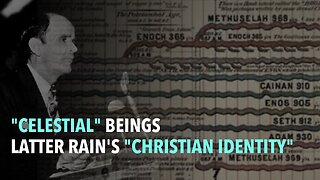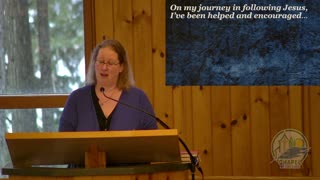January 5, 2024
- The rapture is influenced by the writings of a Jesuit priest named Manuel Lacunza, who wrote a book on biblical prophecy under the pseudonym Juan Josafat Ben-Ezra. Lacunza's book, titled *The Coming of Messiah in Glory and Majesty*, proposed a futurist interpretation of the book of Revelation and a two-stage return of Christ, similar to the rapture theory. Lacunza's book was translated into English by Edward Irving, a Scottish minister who also held similar views on the rapture and the millennium. Irving's followers, known as the Irvingites, claimed to have experienced charismatic gifts and prophetic visions, and some of them predicted the date of the rapture.
- The rapture was popularized by John Nelson Darby and the Plymouth Brethren, a group of evangelical Christians who emphasized the unity of true believers and the authority of the Bible. Darby wrote many books and pamphlets on biblical prophecy and interpretation, such as *The Nature and Unity of the Church of Christ*, *Lectures on the Second Coming*, and *Notes on the Epistle to the Romans*. He also produced his own translation of the Bible from the original languages, which emphasized his dispensationalist scheme.
- Darby and his followers traveled extensively in Europe, North America, and other parts of the world, preaching and teaching their doctrines. They also established many assemblies of believers who adhered to their principles of separation from evil and simplicity of worship.
- Darby's influence reached the United States in the early 20th century, when his rapture theory was incorporated into the Scofield Reference Bible, a widely used annotated edition of the King James Version. This Bible popularized dispensationalism and the rapture among many American evangelicals and fundamentalists.
- The rapture is not a historical or orthodox belief of the Christian church. It is not explicitly taught in the Bible, but is based on a selective reading of a few verses, such as 1 Thessalonians 4:16-17 and 1 Corinthians 15:51-52. These verses do not mention a secret or sudden removal of believers from the earth, but rather a visible and glorious coming of Christ with his saints. It is also inconsistent with the biblical theme of God's faithfulness and presence with his people throughout history, even in times of suffering and persecution.
The rapture is not explicitly taught in the Bible, but is based on a selective reading of a few verses, such as 1 Thessalonians 4:16-17 and 1 Corinthians 15:51-52. These verses do not mention a secret or sudden removal of believers from the earth, but rather a visible and glorious coming of Christ with his saints. The Greek word harpazo, which is translated as “caught up” or “snatched away” in these verses, does not imply a rapture, but rather a meeting or a reunion with the Lord. The context of these verses also indicates that they are not describing a separate event from the second coming of Christ, but rather a part of it.
The rapture doctrine distorts the gospel and the mission of the church to the Jews. It suggests that the church has no responsibility or obligation to share the gospel with the Jews, and that the Jews will be saved by a special dispensation of grace after the rapture of the church. This implies that the Jews do not need to repent and believe in Christ, and that they can be saved by their ethnic identity or their works of the law. This is contrary to the biblical teaching that the gospel is the power of God for salvation to everyone who believes, to the Jew first and also to the Greek (Romans 1:16). The Bible teaches that the church is the body of Christ, and that it is called to preach the gospel to all nations, including the Jews, and to make disciples of them (Matthew 28:18-20; Acts 1:8; Romans 10:14-15)123
The rapture doctrine fosters a false and dangerous support for the state of Israel. It suggests that the modern state of Israel is the fulfillment of biblical prophecy, and that it has a divine right to the land and to the city of Jerusalem. It also suggests that the church should support the state of Israel unconditionally, regardless of its policies or actions, and that any opposition or criticism of the state of Israel is a sign of anti-Semitism or apostasy. This implies that the state of Israel is above moral or political scrutiny, and that it can do no wrong. This is contrary to the biblical teaching that the state of Israel is not the same as the people of Israel, and that it is subject to the same standards of justice and righteousness as any other nation. The Bible teaches that God judges the nations according to their deeds, and that he holds them accountable for their treatment of the poor, the oppressed, and the strangers in their midst (Psalm 82; Isaiah 10:1-4; Jeremiah 22:1-5; Amos 2:6-8; Micah 6:8; Matthew 25:31-46)1
-
 34:20
34:20
On Fire Ministries
5 months agoWho Are You | January 14, 2024
131 -
 4:55
4:55
William Branham Historical Research
5 months agoDecember 21, 2023
102 -
 1:04:57
1:04:57
BonsallBibleChurch
5 months agoJanuary 11, 2024
136 -
 1:02:04
1:02:04
The Master's Voice Prophecy Blog
5 months agoJanuary 8, 2024
10.2K7 -
 15:09
15:09
barrandodger
4 months agoJanuary 19, 2024
55 -
 2:04
2:04
RokinSokinBobbyD
4 months agoJanuary 19, 2024
1001 -
 58:00
58:00
Kapena Wright Ministries
5 months agoJanuary 10, 2024
11 -
 55:58
55:58
Calvary Chapel Battle Creek
5 months agoJanuary 7, 2024
2 -
 1:09:17
1:09:17
chapelbythelake
4 months agoJanuary 28, 2024
166 -
 1:19:20
1:19:20
Ask Seek and Knock
4 months agoJanuary 20, 2024
1832